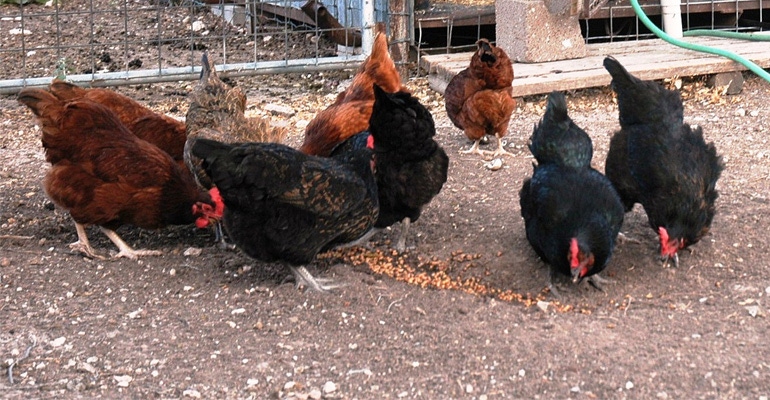
A virus outbreak among backyard chickens in California exemplifies the need for biosecurity diligence year-round, said a Texas A&M AgriLife Extension Service expert.
Dr. Craig Coufal, AgriLife Extension poultry specialist, College Station, said officials have been dealing with a month-long outbreak of Virulent Newcastle Disease, vND, formerly known as Exotic Newcastle Disease.
Coufal said chickens infected with the disease so far have been isolated to two counties in southern California. This is the same area where the last vND outbreak occurred in 2003, which eventually led to infections in commercial flocks. There have been no infections reported among commercial flocks in the U.S. with the current outbreak, according to the U.S. Department of Agriculture.
“They’ve identified the disease in backyard flocks there in California, and the outbreak has been contained to those areas where the chickens were located,” he said. “This is just a good time to consider flock biosecurity, because this is proof we need to be diligent year-round.”
Newcastle disease is a highly contagious and fatal virus affecting the respiratory, nervous and digestive systems of birds and poultry, according to the USDA. The disease is so virulent many birds and poultry die without showing any clinical signs.
Coufal said when birds do show signs of viral infections, including other diseases such as avian influenza or infectious laryngotracheitis, they typically act abnormally. They stop eating, are lethargic, cough or sneeze, and in the case of laying hens, egg production ceases.
No human cases of Newcastle disease have ever occurred from eating poultry products, Coufal said. Properly cooked poultry products are safe to eat. In very rare instances people working directly with sick birds can become infected with mild symptoms.
Coufal said some tips for biosecurity include:
Securing poultry houses against wild birds, pets and livestock.
Restricting visitors from houses and coops, especially without thorough disinfecting.
Dedicating specific shoes or rubber boots for exclusive use in poultry houses.
Washing and disinfecting any shared equipment such as scales, feeders and drinkers.
Initiating rodent and insect control programs.
Acquiring birds from sources where they have been tested for diseases.
For more information about avian influenza and biosecurity practices, go to the Texas A&M AgriLife Extension Poultry Science page: https://bit.ly/2ttpgDu.
“While this outbreak is concentrated to a specific area and officials are sure of its source, this highlights the need to practice proactive disease control,” Coufal said. “If you don’t report a disease outbreak and seek help to control its spread, then isolated cases can get out of hand and turn into massive outbreaks.”
About the Author(s)
You May Also Like




